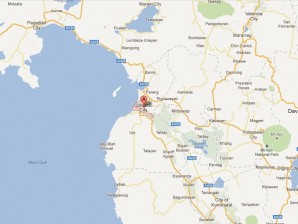Probe shows shots fired during Cotabato bombing

Senior Supt. Rolen Balquin, city police director, said this surfaced in the forensic examination that was requested by the family of one of the victims.
Cynthia Frances Guiani-Sayadi, the city administrator, said the new findings “bolstered the theory that all along we were the target of the attack.”
Sayadi said her motorcycle-riding escorts, Yusoph Jaji and Samsudin Ahari, were killed while they were trying to protect her car from another attack following the explosion.
Gunfire, not shrapnel
Article continues after this advertisementShe said they could have died from gunfire and not from shrapnel.
Article continues after this advertisementA family member of another victim also claimed that a larger wound seen on the corpse of the victim may have been caused by a gunshot and not by shrapnel. The body, however, was not autopsied because Muslims bury their dead within a short period of time.
Citing the Soco report, which was not immediately made available to the media, Sayadi said assassins could have prepositioned themselves somewhere near a popular establishment here to make sure that she or her brother, Mayor Guiapal Guiani Jr., would be taken down if the explosion failed to do the job.
Politically motivated
Guiani said that shortly after the bombing, his sister told him she had heard shots fired right after the explosion.
Guiani and his sister believe the bomb attack was politically motivated and that they were the main targets.
Earlier, Von Al Haq, Moro Islamic Liberation Front spokesperson, said the blast here and in other parts of Mindanao were meant to sabotage the peace process.
“As we observe them, this kind of terror attacks were perpetrated by people against the peace process,” he told the Inquirer.
Al Haq linked “a young jihadist group inspired by al-Qaida,” which he identified as the Khilafah Islamiyah Movement (KIM), to the bomb attacks.